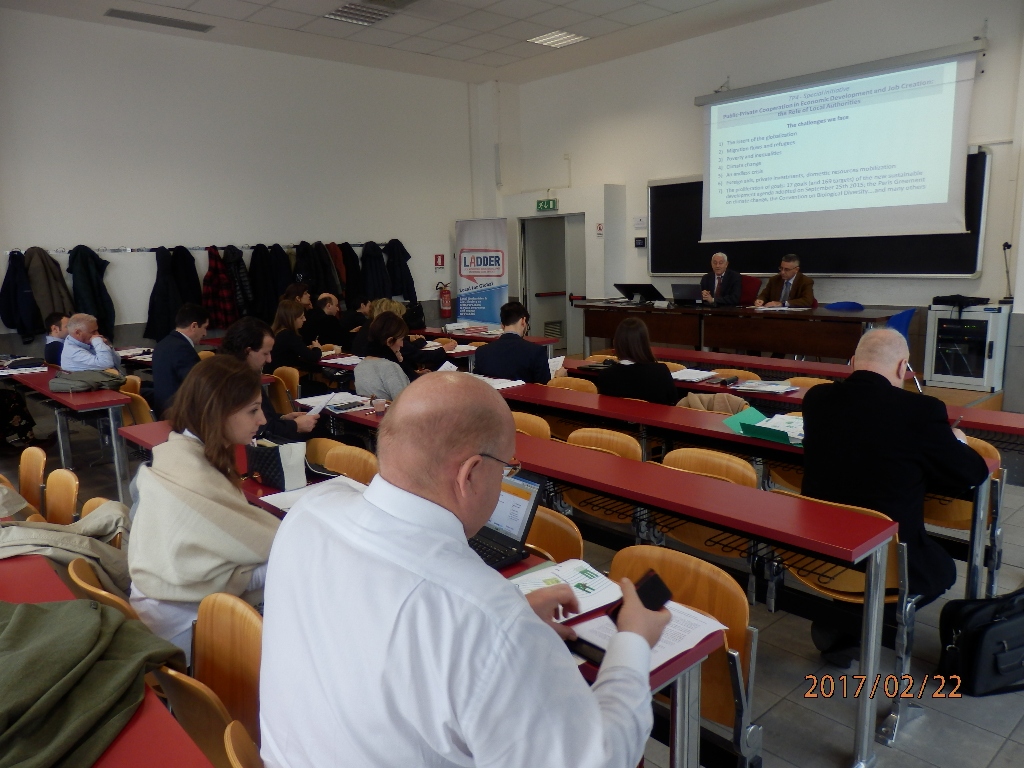Workshop on public private partnership for the development within the project LADDER held in Rome

In Rome was from February 21st to 24th within LADDER project, in which also as partner participates Croatian Counties Association, held workshop “Public-private partnership in economic development and creating jobs – the role of local authorities”. The workshop was implemented as part of the working package of the project related to the transnational working group “Public-Private Partnership for Development”.
The project is implemented from January 2015. to December 2017. and it involves 26 partners and 20 associates from the 18 EU member states and 17 countries outside the EU. The project is based on the DEAR approach that advocates education on the development and raising awareness, and aims to raise awareness of citizens about the interdependence of global and local development problems and encourage their engagement for development and poverty reduction. The project at its center puts local authorities as the main drivers of this approach, and basis of the program is the mutual cooperation of local authorities and civil society organizations.
The workshop was attended by the representatives of partners from several European and African countries, who are involved in the activities of this working group. Croatian Counties Association at the workshop represented the head of the working group for Croatia Vladimir Šadek of Koprivnica Križevci County and Mateja Cah from development agency VIDRA Virovitica-Podravina County.
The workshop was an opportunity to present examples of good practice of public-private partnership of the participating countries, as well as to consider new development opportunities for community development. A three-day workshop resulted in the acceptance of documents “The private sector in international development cooperation – the importance of corporate social responsibility”, “European Charter of Local Authorities for public-private partnership in the development and creation of jobs” and “Local authorities as drivers of development of education and raising awareness.”



